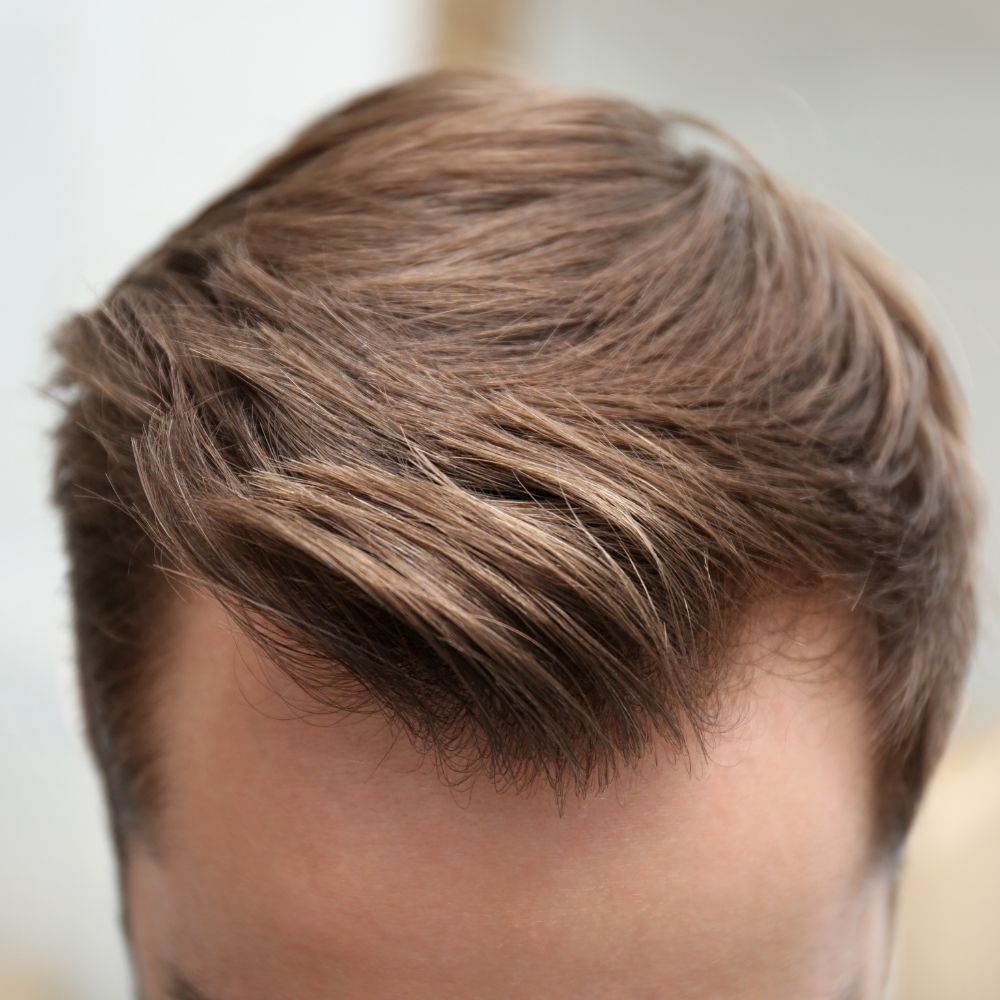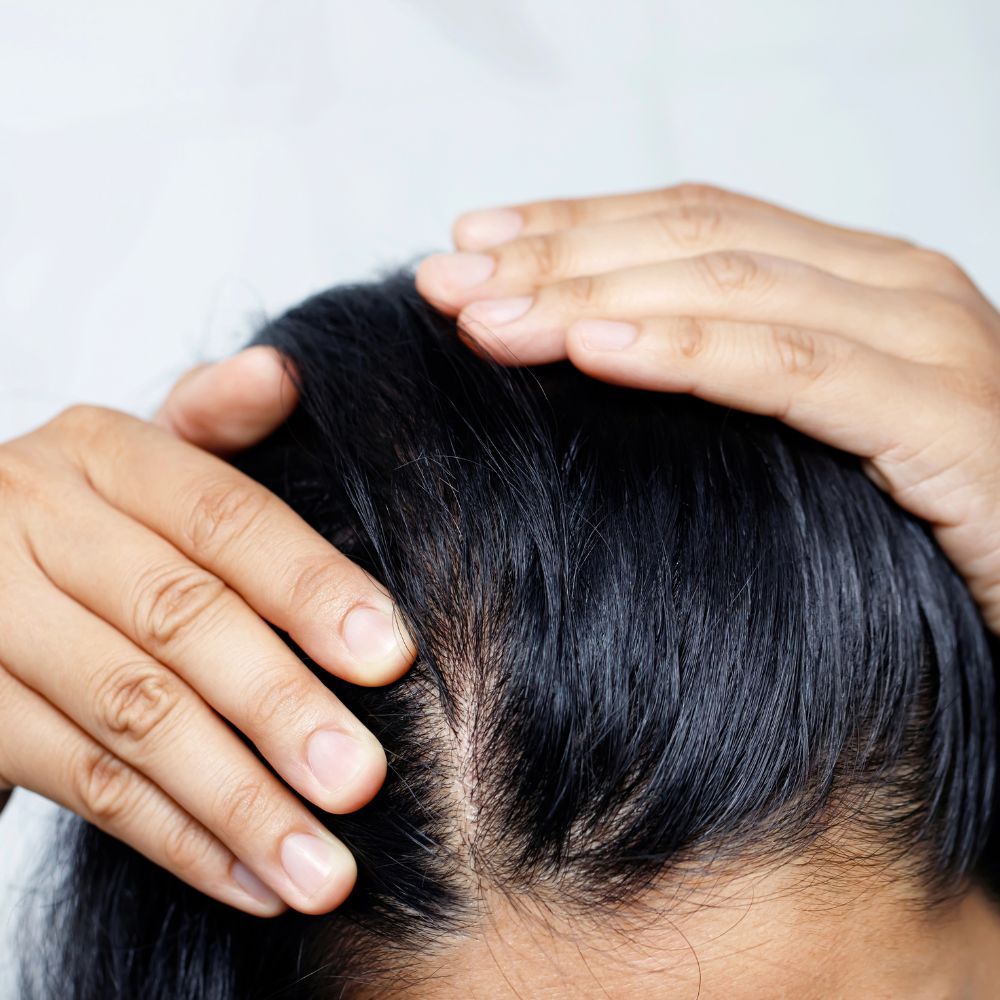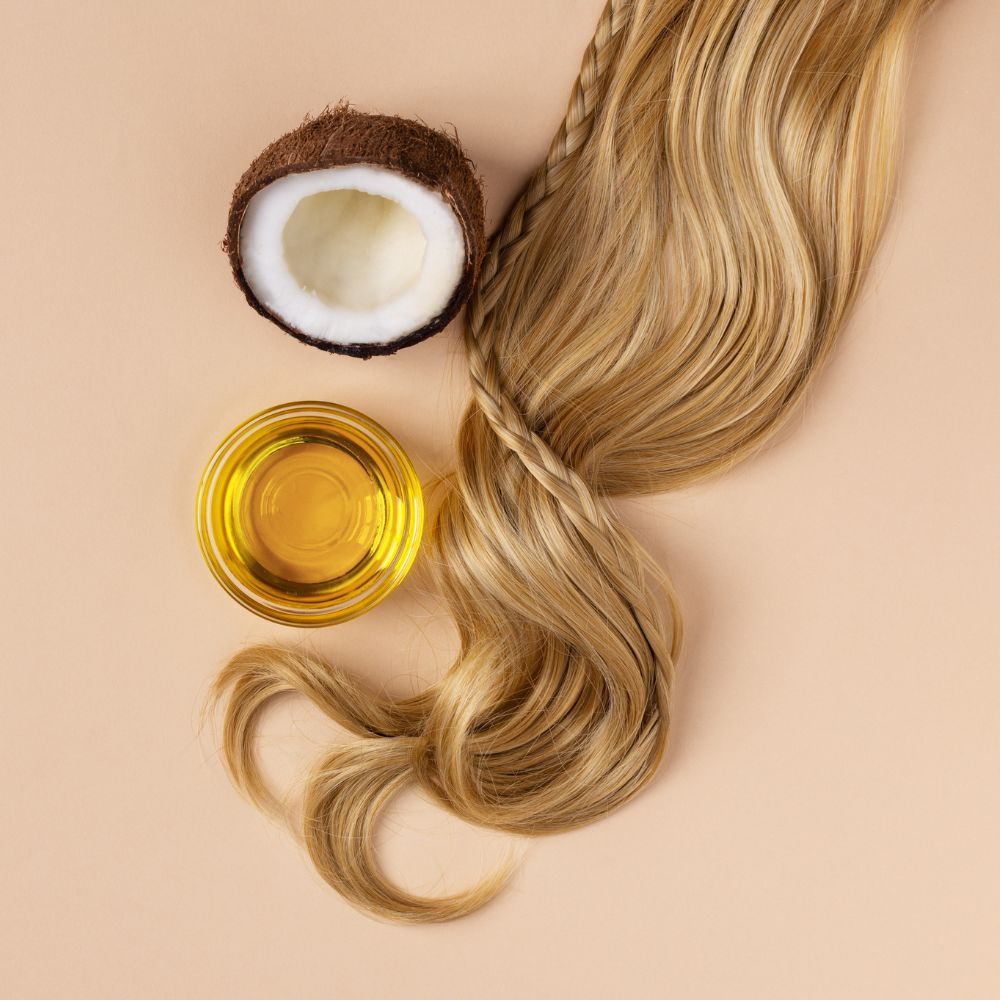Dealing with dandruff can be frustrating and embarrassing, but rest assured, you're not alone. Dandruff is a common scalp condition characterized by flaking skin, itchiness, and sometimes even scalp irritation. The good news is that there are several effective strategies you can implement to combat dandruff and achieve a flake-free scalp. In this article, we'll explore practical tips and remedies to help you get rid of dandruff once and for all.

- Use an Anti-Dandruff Shampoo: Start your dandruff-fighting routine by incorporating an anti-dandruff shampoo into your hair care regimen. Look for shampoos that contain active ingredients like zinc pyrithione, selenium sulfide, ketoconazole, or coal tar. These ingredients work to reduce the presence of the yeast-like fungus called Malassezia, which is often associated with dandruff. Use the shampoo as directed, massaging it into your scalp and leaving it on for a few minutes before rinsing thoroughly.
- Wash Your Hair Regularly: Maintaining a regular hair washing schedule is crucial in managing dandruff. Aim to wash your hair at least two to three times a week, ensuring that your scalp remains clean and free from excess oil and buildup. However, be cautious not to over-wash, as excessive washing can strip your scalp of its natural oils, potentially exacerbating the problem. Finding the right balance is key.
- Practice Proper Scalp Hygiene: Besides using anti-dandruff shampoo, practicing good scalp hygiene is vital for dandruff control. Gently massage your scalp while washing to help loosen and remove flakes. Avoid scratching your scalp vigorously, as it can lead to irritation and worsen dandruff symptoms. Additionally, refrain from using harsh hair products or excessive heat styling, as they can irritate the scalp and trigger dandruff.
- Try Natural Remedies: Several natural remedies can complement your anti-dandruff efforts. Tea tree oil, known for its antifungal properties, can be diluted with a carrier oil and applied to the scalp for relief. Aloe vera gel, with its soothing and moisturizing qualities, can also help alleviate scalp irritation. Apple cider vinegar, when diluted with water, may provide relief by restoring the pH balance of the scalp. Experiment with these remedies, but always perform a patch test before using them extensively.
- Maintain a Healthy Lifestyle: Leading a healthy lifestyle can contribute to a healthier scalp and help combat dandruff. Ensure you're getting a balanced diet rich in vitamins, minerals, and omega-3 fatty acids, as they promote overall scalp health. Stay hydrated and manage stress levels, as stress can sometimes worsen dandruff symptoms. Regular exercise can also improve blood circulation to the scalp, aiding in its health and reducing dandruff.
- Consult a Dermatologist: If your dandruff persists despite trying various remedies and lifestyle adjustments, it may be beneficial to consult a dermatologist. They can assess your scalp condition, provide personalized advice, and recommend stronger prescription-based anti-dandruff treatments if necessary.
Dandruff can be an annoying and persistent scalp condition, but with the right strategies, it can be effectively managed. Incorporate anti-dandruff shampoos, practice regular scalp hygiene, explore natural remedies, maintain a healthy lifestyle, and consult a dermatologist if needed. By implementing these measures, you can achieve a flake-free scalp and regain your confidence. Say goodbye to dandruff and hello to healthier, happier hair!

FAQs about How to Get Rid of Dandruff
Here are answers to some frequently asked questions about getting rid of dandruff and achieving a flake-free scalp:
How long does it take to get rid of dandruff?
The timeline for getting rid of dandruff can vary depending on the individual and the severity of the condition. With consistent use of anti-dandruff shampoos and proper scalp care, you may start to see improvements within a few weeks. However, it's important to continue the treatment even after the dandruff subsides to prevent its recurrence.
Can dandruff be cured permanently?
While dandruff cannot be permanently cured, it can be effectively managed with the right strategies. By following a consistent hair care routine, using appropriate anti-dandruff products, and maintaining a healthy scalp, you can keep dandruff under control and minimize its impact on your daily life.
Can I use regular shampoo instead of an anti-dandruff shampoo?
While using an anti-dandruff shampoo is generally recommended for treating dandruff, the decision to use regular shampoo or an anti-dandruff shampoo depends on the severity of your dandruff and personal preference. Here are a few factors to consider:
- Mild Dandruff: If you have mild dandruff and experience occasional flaking or itchiness, using a regular shampoo may be sufficient. Regular shampoos can help cleanse the scalp and remove some of the visible flakes. However, keep in mind that regular shampoos may not specifically target the underlying causes of dandruff, such as the overgrowth of yeast on the scalp.
- Persistent Dandruff: If you have persistent or severe dandruff, it is advisable to use an anti-dandruff shampoo. Anti-dandruff shampoos are specifically formulated with active ingredients, such as zinc pyrithione, selenium sulfide, ketoconazole, or coal tar, which help combat the underlying causes of dandruff. These ingredients can help reduce the overgrowth of yeast or fungus on the scalp and alleviate dandruff symptoms more effectively.
- Targeted Treatment: Anti-dandruff shampoos often provide additional benefits like reducing scalp irritation, controlling excess oil, or soothing itchiness. They are designed to address specific scalp concerns associated with dandruff. Regular shampoos, on the other hand, may not offer these targeted benefits.
- Trial and Error: It may be helpful to try different shampoos and observe how your scalp responds. If regular shampoo fails to provide relief or if dandruff persists, you may want to switch to an anti-dandruff shampoo to address the underlying causes and manage dandruff effectively.
Remember, individual experiences with dandruff can vary, and what works for one person may not work for another. If you're uncertain about which shampoo to use or if your dandruff worsens or becomes persistent, it's best to consult a dermatologist. They can assess your scalp condition, provide personalized advice, and recommend the most suitable treatment for your specific needs.
Ultimately, the goal is to find a shampoo that effectively manages your dandruff, keeps your scalp healthy, and helps you achieve a flake-free scalp.
Are natural remedies effective in treating dandruff?
Natural remedies can provide relief for some individuals, but their effectiveness may vary. Tea tree oil, aloe vera, and apple cider vinegar are commonly used natural remedies for dandruff. While these remedies have antifungal or soothing properties, they may not work for everyone. It's important to remember that natural remedies should complement, not replace, anti-dandruff shampoos and proper scalp care.

Can stress worsen dandruff?
Stress can contribute to various health conditions, including dandruff. Although the exact link between stress and dandruff is not fully understood, high-stress levels may trigger or exacerbate dandruff symptoms. Practicing stress management techniques such as exercise, meditation, and relaxation exercises can help reduce stress levels and potentially improve dandruff symptoms.
When should I consult a dermatologist for dandruff?
If your dandruff persists despite using over-the-counter anti-dandruff products and following proper scalp care, it may be beneficial to consult a dermatologist. They can assess your scalp condition, determine if an underlying condition is causing the dandruff, and provide personalized treatment options, including stronger prescription-based anti-dandruff medications if necessary.
Remember, everyone's experience with dandruff is unique, and it may require some trial and error to find the most effective treatment for you. By staying consistent with your hair care routine and seeking professional advice when needed, you can effectively manage dandruff and achieve a flake-free scalp.
Dandruff is a very common condition that affects 50% of people at some point in their lives. There are a few different things that can cause dandruff, including not shampooing often enough, dry skin, eczema, psoriasis, contact dermatitis, seborrheic dermatitis, and an overgrowth of yeast. There are a few different ways you can get rid of dandrupalt flakes , including shampooing more frequently , trying an anti-dandruff shampoo , exfoliating your scalp , keeping your clean and dry, and applying coconut oil.
If you’re looking for the best shampoo for dandruff, you’ve come to the right place. We’ve reviewed all of the options out there and these are our top picks. Click on the link and check the prices today.
Read our article about best cruelty free lipstick here!
Read our article about best deodorant for kids here!
Read our article about best hair brush for fine hair here!







